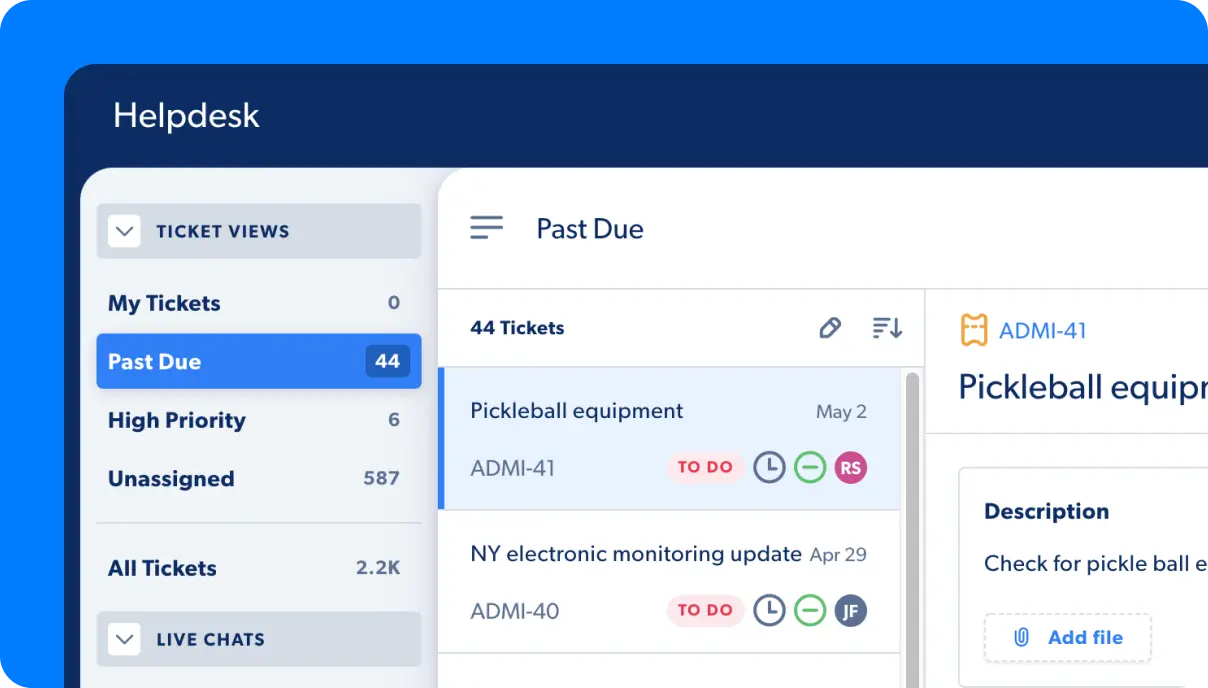Searching for information is so normalized in today’s digital environment that 3.5 billion searches are completed on Google every single day, and those answers span hundreds of billions of web pages. However, the average search session doesn’t last more than 60 seconds.
As consumers, we’ve been spoiled with fairly accurate and fairly instantaneous results when searching for general information. However, as teammates and employees, finding information in an organization is extremely difficult. To alleviate the pain associated with finding helpful knowledge, companies can implement enterprise search software.
What is enterprise search?
At its core, enterprise search is an organized solution that stores and retrieves useful information that is completely owned by a business. It acts as the central hub, linking people to the knowledge they need to effectively perform their responsibilities. You can customize enterprise search with specific data and include a personalized search experience that answers queries within a context relevant to the organization.
What are the benefits of enterprise search?
Similar to a search engine, users of an enterprise search platform can experience time savings, relevant and accurate information, and instant answers that live within an organization’s knowledge base.
Better quality.
Because users spend less time jumping back and forth between various informational platforms to find what they need, they can get more of their responsibilities done in less time. This could encourage more quality work—the less time spent searching for information, the more time focused on the project at hand.
Data-driven outcomes.
More information means having enhanced access to better answers, which will result in data-driven outcomes. With a deep pool of information, employees may even incorporate more diverse knowledge into their decision-making processes.
Productivity and efficiency.
Enterprise search can help decrease the frustration that comes from spending hours scouring through disparate indexes of company-wide data. If you can cut down on the amount of time it takes to find what you need, then you can improve both productivity and efficiency.
How to get optimal results.
Implementing enterprise search software (or any tool for that matter) requires leadership to define business objectives, understand the goals they want to reach with the product, and determine the needs that the product must meet. However, when implementing an enterprise search system, it’s important to think long and hard about the information that should be integrated into the software and the necessary features of the product.
Decide what information is searchable.
Determining which document management systems, web pages, databases, and publication tools need to be made accessible via search ahead of time can simplify the process of making it accessible.
In addition, if you look into current usage data, it’s easy to set beneficial information apart from the knowledge that you aren’t accessing or utilizing. If you don’t currently have data or you are looking to expand on it, implementing enterprise search software can help. Enterprise search makes it easy to identify the most clicked results, users performing the most searches, traffic of search over time, and more.
Search across mediums.
Users should be able to search across platforms as needed. The more content that’s available, the better chance the answer will be informative. However, this could be a problem if your enterprise search platform lacks integration capabilities.
Also, choosing an enterprise search software that can connect to apps, databases, web pages, documents, etc., and mine the data within them can eliminate the need to transfer the knowledge from an app to a database.
Pro Tip: Enterprise search software that’s accessible via smartphones, tablets, and laptops (wherever your team shall roam) enables more efficient searching.
Make it conversational.
Finding knowledge could feel as natural as talking to a coworker with an enterprise search platform that has a chat interface. Rather than asking a question and getting multiple results, you can streamline the process and receive a straightforward answer.
With a chat interface, the number of questions you can ask grows and the quality of answers you receive improves.
Keep it secure.
An enterprise search platform is only as good as its permission structures. Connecting to apps, documents, and databases means that a lot of your company’s knowledge is accessible. However, it should only be accessible to those who need it.
The tool you choose should have the necessary security protocols in place to ensure no one can access confidential information that isn’t for them.
A successful enterprise search implementation is an effective means for boosting the productivity of an organization. When an enterprise search is optimized, everyone is happy—employees, management, and organizations as a whole.











































